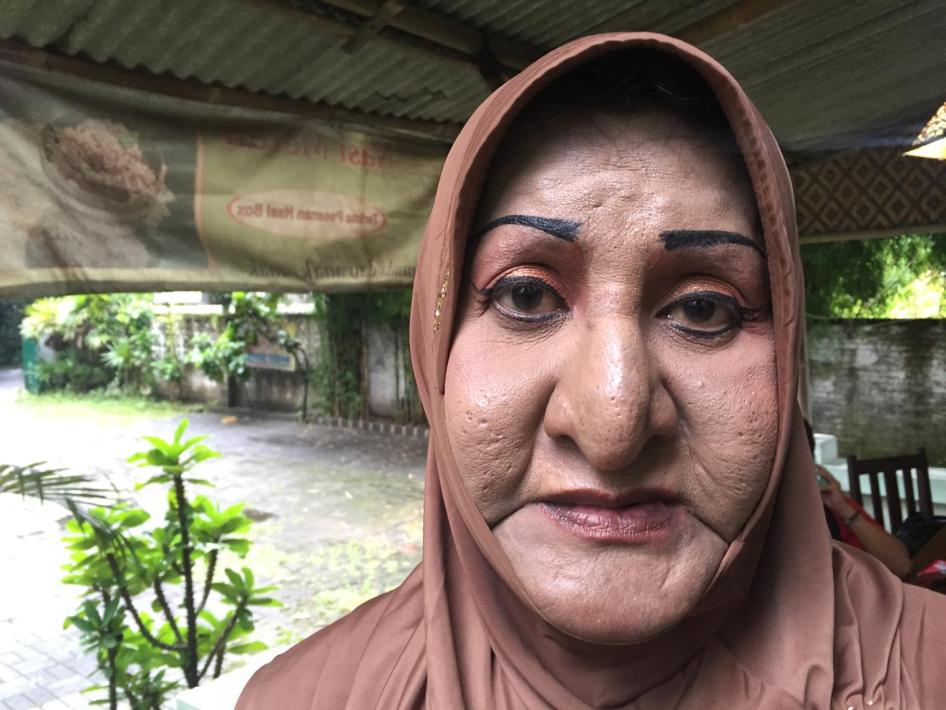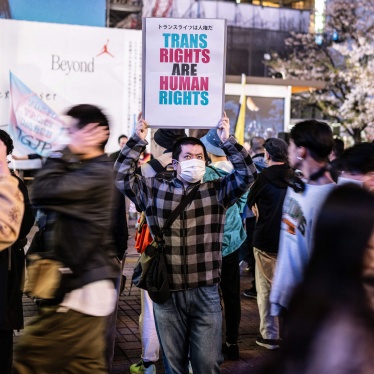(New York) – The Indonesian government should reject a parliamentary committee proposal to censor media related to lesbian, gay, bisexual, and transgender (LGBT) issues, Human Rights Watch said today in a letter to the Information and Communication Ministry. The proposal follows a spate of anti-LGBT rhetoric from senior government officials that discriminatory standards should be enshrined into law.
“The proposed broad censorship of LGBT content marks a new low in the official assault on Indonesia’s LGBT community,” said Phelim Kine, deputy Asia director. “Access to information about sexual orientation and gender identity is a basic right that the government should defend, not deny.”
The Indonesian government should stop seeking to censor and silence the LGBT community, and Internet and mobile app companies should resist such government actions. The Internet has been a transformative space for human rights activists by offering sanctuary and access to crucial information for LGBT people. Internet companies have a responsibility to defend their users’ rights to access information by rejecting government moves to undermine those rights.
On March 3, 2016, Indonesia’s Parliamentary Commission for Defense, Foreign Affairs and Information, or Commission I, recommended “measures for the [Indonesian Broadcasting Commission, or KPI] to tighten controls over broadcasting LGBT-related content, as well as sanctioning strict punishment for violation of LGBT content delivery.” Specifically, Commission I recommended that the Information and Communication Ministry and KPI should close online sites that “promote and propagate” LGBT content and draft the necessary regulations to support its actions. The ministry has publicly indicated its intent to comply with these recommendations.
On February 12, the ministry asked messaging app companies to remove content that does not “respect the culture and local wisdom of the country where they have large numbers of users.”
One Japanese mobile messaging app company, LINE, honored the call by removing LGBT-themed cellphone “stickers” from its service. The company had previously included images designed by Indonesia’s transgender community.
On February 17, the ministry issued an overly broad ban on the social media website Tumblr for hosting “pornographic content” that included non-pornographic LGBT-related information. The ministry later stated that it would instead reach out to Tumblr and Yahoo!, which owns Tumblr, to ask it to “self-censor” banned content.
On February 23, the ministry announced guidelines barring broadcasters from showing men wearing “feminine dress” or speaking in a feminine manner. These directives coincide with statements by the Indonesian Child Protection Commission (KPAI) and Indonesian Broadcasting Commission endorsing censorship of LGBT-related content in public broadcasts.
The Information and Communication Ministry should end these regressive developments, which violate the rights to freedom of expression and non-discrimination under the International Covenant on Civil and Political Rights. The proposed actions are also contrary to article 28 of the Indonesian constitution.
“The Indonesian government should protect, not restrict, the public’s rights to free expression and access to information,” Kine said. “The communications ministry should loudly reject any proposal to censor LGBT information to signal that the government stands up for universal rights against discrimination.”








